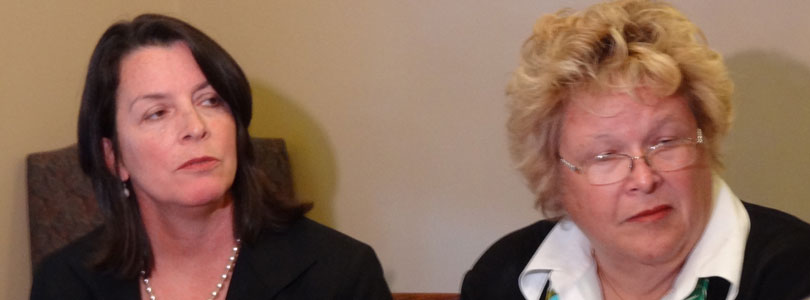Lt. Gov’s Press Conference: Personal Responsibility and Free Markets
At yesterday’s press conference, featuring Lieutenant Governor Elizabeth Roberts, RI Secretary of Health and Human Services Stephen Costantino, and new health exchange Director Christine Ferguson, I asked about the uninsured Rhode Islanders expected to find coverage with the implementation of the Patient Protection and Affordable Care Act (PPACA).
How many of the 120,000 new recipients would really just be young adults who’ve heretofore determined that they don’t really need coverage? My premise is that such people don’t necessarily overlap extensively with the population that uses expensive emergency room services as a primary care vehicle.
The answers were interesting, especially for anybody who is striving to assess the likely next steps of health care policy development. Costantino seemed at least partially to affirm my premise: “You have some young people who are working for a small business that don’t have health insurance; they haven’t really utilized the system. But it’s scary.”
Ferguson stepped in to define the fear:
The issue is, if that young person doesn’t have insurance, and they get hit by a car walking across the street, they go someplace. Then, all of us pay the cost. What the mandate is about is saying, “We all run the risk of something significant happening to us, even if we are currently healthy right now.”
The reference to extreme circumstances raises multiple questions. Some are practical: What is the frequency and cost of treating accidental injuries among the uninsured as compared with the cost in taxes , higher premiums, and lost options for covering them through insurance? Some are more philosophical: When it comes to catastrophic, sudden illness, how much freedom ought the individual have to accept the risk that he or she will pull that terrible straw and have to rely on personal sacrifice and the good will of others?
In either case, other options exist than full universal health coverage. As I touch on in the related policy brief that I cowrote for the RI Center for Freedom & Prosperity, allowing mandate-light high-deductible insurance options would lower the price of catastrophic coverage, perhaps to the point at which public education and social pressure could achieve almost universal coverage.
Lt. Governor Roberts’s follow up, however, expands the area of concern:
… it’s also about how do we have a primary care system that means that my 23-year-old daughter has her regular check ups, monitors her blood pressure and cholesterol, and throughout our lives, we improve and maintain our health, so that we not only have a better quality of life, but also a lower cost to ourselves and our health care system because we’ve been taking care of our health.
We are a country now of chronic illnesses, and that is something that we can act significantly in taking care of ourselves and also using the health care system the right way.
Again, practical questions arise: Is a premium-based insurance scheme really the most efficient method of providing such services, or would tax-free health savings accounts and direct payment be a better approach?
More important, though, is the implication for the future of the health care debate. Having healthy practices covered in an insurance plan definitely does not guarantee their use. After all, people can quit smoking and moderate fast food intake at a profit, and still such things contribute to Americans’ chronic health problems. In keeping with the notion of the health care mandate as a tax, it would be very easy to justify additional taxes on those who do not utilize preventative services or behave in a healthy way.
The two paths currently before the public entail personal responsibility and free markets on the one side and expanding centralized control on the other. As close as they may appear, from where we currently stand, in the long run, they are mutually exclusive. That point arose during the press conference when WPRO reporter Steve Klamkin asked about the RI Center for Freedom & Prosperity’s call for a switch to the free-market path.
Ferguson replied that “this is a market-based program. This is a program built on commercial insurance enrollment for Rhode Islanders who aren’t insured.” Roberts continued:
We have a Medicaid managed-care program which is through private insurers, and we are talking about mandating people to purchase insurance in a private system with a federal subsidy, but you make that decision in the private market.
There is no question that the scheme developed through the PPACA strives to use certain market mechanisms. (One could argue about the degree to which that is for reasons of efficiency or of cronyism.) However, the degree to which there is a true market — much less a free market — comes into question when the insurer is not free to offer coverage between an extensive list of requirements and the consumer is not free to walk away entirely.
That’s a bit like saying that labor unions are free to negotiate, but they never have the right not to work. Or for folks on the other side of the aisle, it’s a bit like saying that freedom of religion can be preserved if citizens can choose from a variety of faiths… as long as the churches provide some “essential” services, such as preaching the truth of monotheism and original sin.



